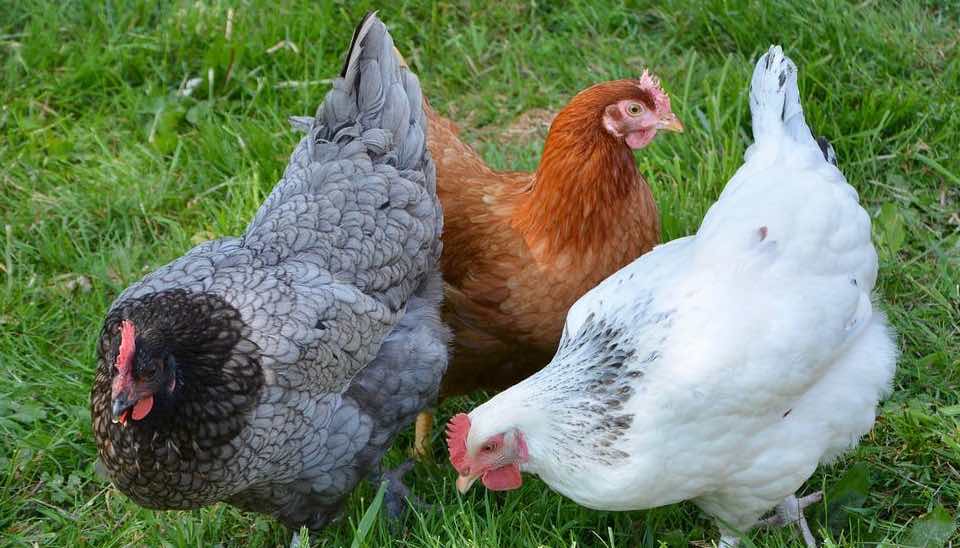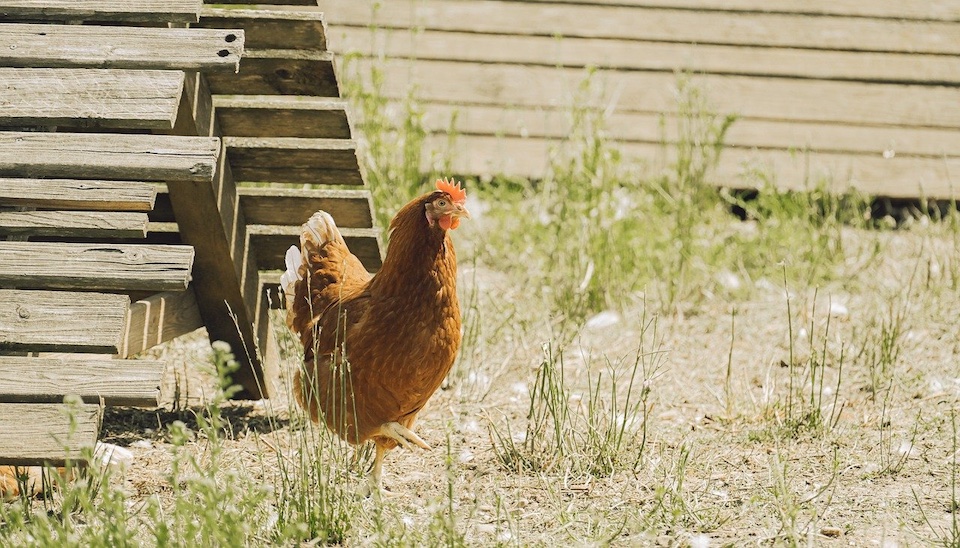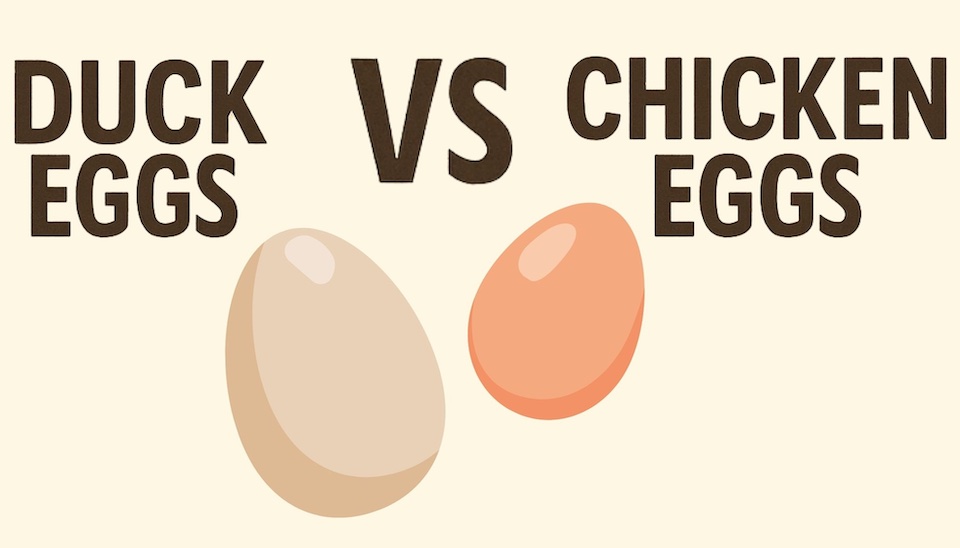When to feed chickens and how often
How often to feed chickens
For chickens, the best answer to 'How often should I feed my chickens?' is all the time.
Chickens should have free access to a complete layer feed from when they first get up until they roost at night.
How often do chickens eat?
Chickens don't spend the whole day eating. In fact, chickens have evolved to eat regular small meals with breaks in-between. Limiting access to feed disrupts this process.
Chickens have a very different digestive system to humans. Food is stored in the crop, which begins the process of digestion, before it is ground in the gizzard. This allows chickens to digest hard grains and grasses.
It takes time for both the crop and the gizzard to do their digestive work. So chickens have evolved to eat as much as they can and then do something else until the food is digested. This could be dust bathing, preening, sunning themselves, laying an egg or foraging.
So chickens naturally eat multiple times a day, whenever their crop is empty. Chickens that are foraging will take longer to fill their crop than chickens that are just eating out of a feeder, but the process is the same.
When to feed chickens
Chickens will invariably eat (and drink) as soon as they rise, because their crop is empty. One of the most common problems is chicken keepers don't get up early enough to make feed accessible - this causes bullying and feather pecking as hungry (or hangry) birds wait for breakfast!
Chickens also eat right before roosting, so they have something to digest overnight. This keeps them warm in cool weather and is important for egg production, as the reproductive cycle is usually more intense and requires more nutrients at night.
Then chickens will eat multiple times throughout the day, as they feel hungry. This will vary among individual birds and can also be influenced by age, breed, productivity and even the weather.
Pecking order also plays a role, as lower ranking birds will eat when the feed is not being monopolised by more dominant birds. For example, we had one low-ranking chicken that would wait until all the other birds had gone up to roost in order to be able to get her fill in peace.
If I feed my chickens less often, will they eat less?
Limiting access to food during the day doesn't really decrease feed consumption. Whether you provide unlimited access to food during a few set time periods, or you provide limited access to food at certain times, the results are the same.
The most common impact of feeding at set times is that some, or all, of your birds simply eat more at one time than they otherwise would. This binge eating isn't as healthy for their digestive system and can cause a pendulous crop (distended crop).
Another problem is that unless you feed each bird individually, dominant birds will monopolise the feeder at feeding times. This means that the higher-ranking birds end up eating the same amount overall and lower-ranking birds have less access to feed. The birds that don't get enough feed will be less productive and suffer from more health issues than they would if they had access to the feeder throughout the day, so they could avoid being chased away by more dominant birds.
Some people believe limiting the amount of feed in the morning saves money because chickens forage more during the day. But forage doesn't have the same nutritional value as feed, so this is likely to impact health and productivity. And the same issues around feeding, pecking order and binge eating still apply.
Why should chickens have unlimited access to food?
Giving your chickens unlimited access to their feed throughout the day is the best option in almost all circumstances. Why? Because:
- Chickens' digestive systems evolved to consume many small meals throughout the day
- It stops binge eating and related health issues
- The health and productivity of low pecking order birds is likely to suffer where food access is limited
- Modern chicken breeds require optimum nutrition for high productivity, and this is almost impossible to achieve when feed access is limited
The only circumstance where limiting feed access to set times or amounts is where a chicken is prone to binge eating or pendulous crop. But even then, individual feeding should be considered in order to ensure all members of the flock are getting everything that they need to thrive.
For more information about chicken nutrition and feed, try these articles:
Happy chicken keeping!
Rachael at Dine a Chook Australia



